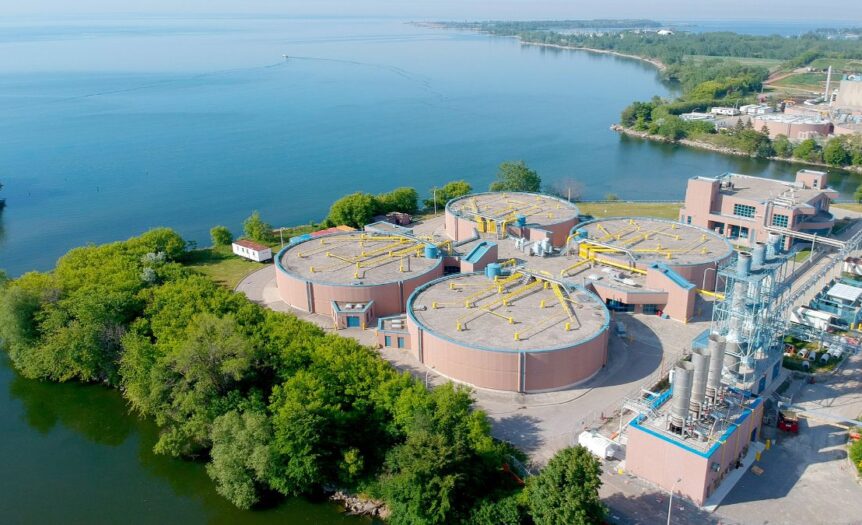Wastewater, also known as sewage, is any liquid waste contaminated with chemicals or other materials. Sewage can include household wastewater from bathrooms and kitchens, industrial wastewater from factories and businesses, and runoff from agricultural activities such as fertilizer application. It’s important to understand how wastewater can negatively impact the environment to ensure you’re using safe management practices.
Habitat Destruction
Habitat destruction caused by wastewater is a serious environmental issue that can devastate aquatic ecosystems. When untreated wastewater enters a body of water, it introduces pollutants such as fertilizers and pesticides, which can disrupt the natural balance of an ecosystem and lead to reduced biodiversity. These chemicals also increase oxygen demand in the water, which depletes dissolved oxygen levels, leading to algal blooms and dying animals. These changes cause irreparable damage to habitats, reducing wildlife populations and increasing extinction rates among endangered species.
Soil Contamination
Soil contamination is a type of environmental pollution caused by hazardous materials in soil, including toxins and other pollutants. These contaminants can come from various sources, including wastewater. The consequences of soil contamination are far-reaching and can significantly affect ecosystems. Certain pollutants enter the soil and become absorbed into plants through their roots. This pollution can cause soil to break down and become too unhealthy for crops to grow. It can also spread diseases if humans or animals eat food grown in the contaminated soil.
Groundwater Pollution
Wastewater can also pollute groundwater sources. Groundwater contamination occurs when pollutants enter an aquifer directly or indirectly through surface water runoff. Sources of groundwater pollution are numerous but commonly stem from improper management practices, which is why proper wastewater management is important. This issue can negatively impact drinking water quality and affect aquatic habitats located downstream from contaminated areas. The effects of contamination vary depending on the type and concentration of pollutants present. Common contaminants include heavy metals, synthetic chemicals, and human waste. Drinking water contaminated with these pollutants can cause serious illness or disease.
Now that you know the ways that wastewater can harm the environment, you better understand these issues. Following safe wastewater management practices is important to avoid these environmental impacts.










 Deering Estate
Deering Estate
 Massage Envy South Miami
Massage Envy South Miami
 Calla Blow Dry
Calla Blow Dry
 My Derma Clinic
My Derma Clinic
 Sushi Maki
Sushi Maki
 Sports Grill
Sports Grill
 The Healthy Kitchen
The Healthy Kitchen
 Golden Rule Seafood
Golden Rule Seafood
 Malanga Cuban Café
Malanga Cuban Café

 Kathleen Ballard
Kathleen Ballard
 Panter, Panter & Sampedro
Panter, Panter & Sampedro
 Vintage Liquors
Vintage Liquors
 The Dog from Ipanema
The Dog from Ipanema
 Rubinstein Family Chiropractic
Rubinstein Family Chiropractic
 Your Pet’s Best
Your Pet’s Best
 Indigo Republic
Indigo Republic




 ATR Luxury Homes
ATR Luxury Homes


 2112 Design Studio
2112 Design Studio
 Hamilton Fox & Company
Hamilton Fox & Company
 Creative Design Services
Creative Design Services
 Best Pest Professionals
Best Pest Professionals
 HD Tree Services
HD Tree Services
 Trinity Air Conditioning Company
Trinity Air Conditioning Company
 Cisca Construction & Development
Cisca Construction & Development
 Mosquito Joe
Mosquito Joe
 Cutler Bay Solar Solutions
Cutler Bay Solar Solutions


 Miami Royal Ballet & Dance
Miami Royal Ballet & Dance
 Christopher Columbus
Christopher Columbus
 Pineview Preschools
Pineview Preschools
 Westminster
Westminster
 Carrollton
Carrollton
 Lil’ Jungle
Lil’ Jungle
 Frost Science Museum
Frost Science Museum
 Palmer Trinity School
Palmer Trinity School
 South Florida Music
South Florida Music
 Pinecrest Orthodontics
Pinecrest Orthodontics
 Dr. Bob Pediatric Dentist
Dr. Bob Pediatric Dentist
 d.pediatrics
d.pediatrics
 South Miami Women’s Health
South Miami Women’s Health

 The Spot Barbershop
The Spot Barbershop
 My Derma Clinic
My Derma Clinic




 Miami Dance Project
Miami Dance Project

 Rubinstein Family Chiropractic
Rubinstein Family Chiropractic
 Indigo Republic
Indigo Republic

 Safes Universe
Safes Universe
 Vintage Liquors
Vintage Liquors
 Evenings Delight
Evenings Delight





 Atchana’s Homegrown Thai
Atchana’s Homegrown Thai
 Baptist Health South Florida
Baptist Health South Florida

 Laser Eye Center of Miami
Laser Eye Center of Miami
 Visiting Angels
Visiting Angels
 OpusCare of South Florida
OpusCare of South Florida

 Your Pet’s Best
Your Pet’s Best





 HD Tree Services
HD Tree Services
 Hamilton Fox & Company
Hamilton Fox & Company


 Creative Design Services
Creative Design Services